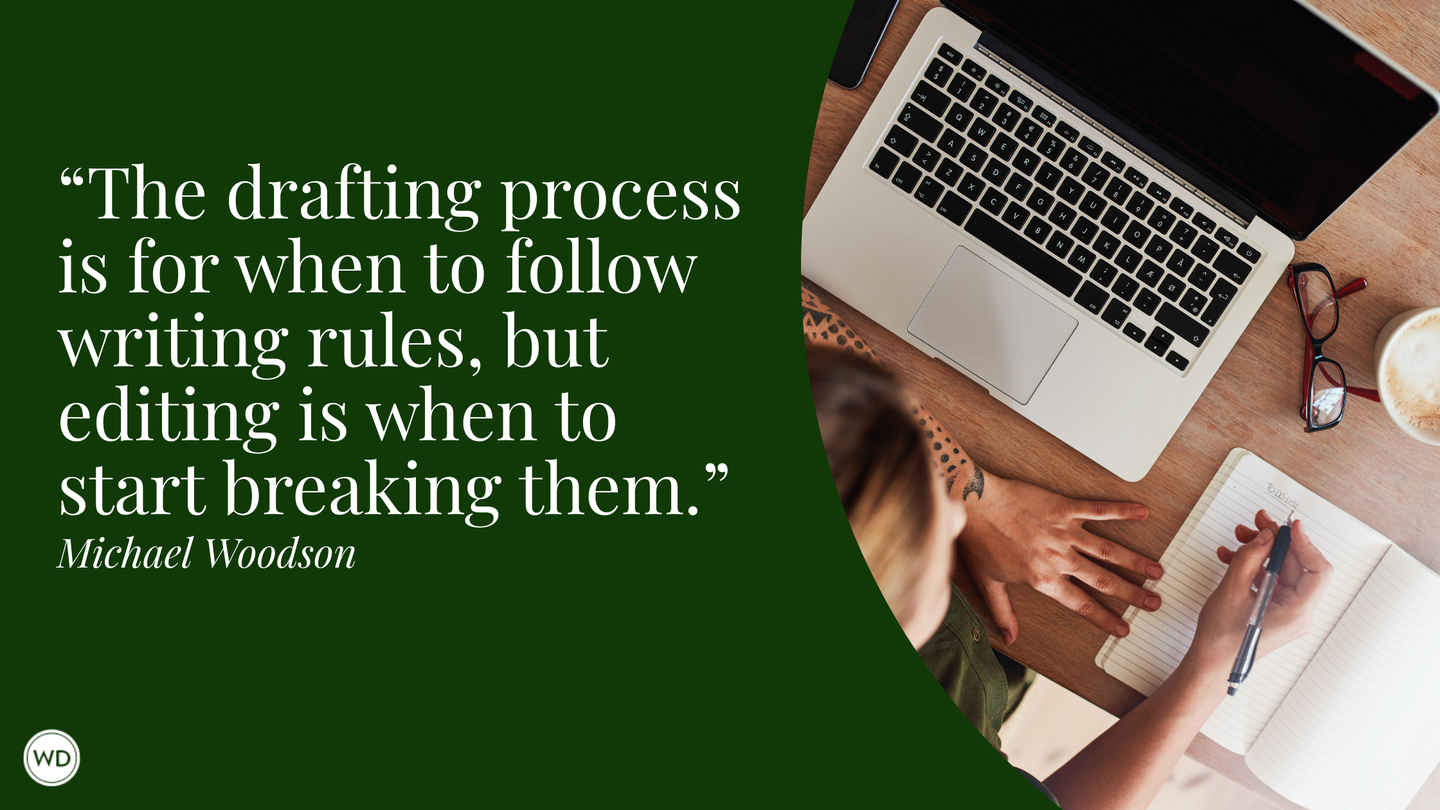AI Has Made Me a Better Writer, but not by Writing
Freelance writer Jeff Raderstrong shares how AI has made him a better writer, but not by actually writing.
Like most ominous developments, the spread of AI seems to have happened slowly, then all at once. For years we were hearing concerns about what an AI-future might bring us, but it all seemed as far off as those sci-fi stories that made similar claims since the genre began.
Now, though, this AI future is solidly, and unavoidably, here. The robots have arrived, and they can write.
Any conversation about the future of publishing or writing in the last several months has included some consideration of AI, and not in a positive way. There are real concerns about plagiarism, the end of creativity, and of course, whether or not writers are even needed in a world where AI can churn out books upon books of content each day, without rest.
I sympathize with writers who look at what AI has wrought and cower in fear, or push back in anger, or throw up their hands, unsure what to do with yet another disruption to the industry. Most of us just want to write, and make a living doing it, however we can, and don’t care to make sense of whatever the heck a transformer is, and why it comes to us pre-trained, and how a combination of those things could be anything close to generative. At least, that’s how I feel.
But recently, I’ve also found myself relying more and more on AI in my work as a ghostwriter and writer, becoming a little more productive—maybe 5%—aligned with what Nate Silver calculated as his own AI-driven boost. This made me think a little deeper about how exactly everything will shake out with AI, and consider that maybe, possibly, it won’t be all bad. And that if I continue to keep my head stuck in the ground around all things AI, I might get left behind.
Reports of our AI dystopian future may be greatly exaggerated
Before I go any further, I want to be crystal clear about two things: First is that, in my opinion—which, also to be clear, is likely worth less than your average ephemeral hot take coming out of this digital soapbox we know as the internet—AI still suffers from major ethical concerns around plagiarism and data mining. AI operates in this way because the companies that developed the software rely on the theft-based dominant business model of the internet, as beautifully described by tech writers like Jaron Lanier. This decision is a choice that can be altered while still preserving the potential upside of the tool.
Second: I never use AI to write anything. I was at a writing conference and someone told me he used AI to craft a first draft of a piece he was working on, just to get away from the blank page. I thought this seemed suspect, but I figured I’d give it a try, because, generally speaking, I do not trust my own instincts about things, especially when it comes to my profession. I asked AI to write a blog post on a topic I was working on for a client, and oh boy, was it terrible. It took me longer to edit the first paragraph than it would have taken to write the first half of the piece on my own. So, I do not want to advocate for AI-based writing. Both for ethical reasons (see point #1, above) and practical concerns.
Where AI can help writers
However, I have found that for the supplemental parts of writing, AI can be quite useful. I work as a ghostwriter for business leaders, and I have been able to use AI to help with research, copyediting, and asking for words that mean the same thing, but slightly different (this used to be called a thesaurus).
At first I felt bad about doing this, because, you know, AI is bad, but then, instead of using AI, I went back to my old methods: Googling things. I realized how silly this was—I was preventing myself from using a powerful tool to improve my work, while using a different digital tool that might be just as bad, or possibly worse, depending on your opinions of Google (which has now integrated an AI search tool that I find not super effective).
AI has already been helping writers
It was then I realized that I, a digital native that got the internet in my home when I was around 10 years old, have never written anything without the help of software trained on the writing of authors who came before.
I do not think I would have the career I do now without spellcheck, for example. I am a terrible, terrible speller. But that hasn’t really been a problem for me as a writer. The robots take care of any misspellings. Sure, you can say I could have gotten over this character deficit if I didn’t have spellcheck as a crutch, but to be honest, I don’t think that’s true. I can’t do Wordle, I’m terrible at the crossword. It’s just who I am.
Fitzgerald was also apparently pretty bad at spelling and grammar and he had the benefit of paying someone to take care of those petty mistakes for him. Spellcheck was able to bring that previously high-cost, labor intensive service to the masses.
In the same way, AI is simply a technological advancement with an uncertain future. We can choose to make it our own, and use it to be better and more creative writers. When I’m working with a sentence that’s particularly complex, I can ask AI: Is this sentence grammatically correct? It spits out an answer, and about half the time, it’s helpful. For someone who spends my day in a room alone, writing, this is a tremendous benefit.
So how can writers get started with AI?
I do not want to endorse a particular product, but in case you are interested, I will say that I do not use ChatGPT, but instead, Perplexity, which was developed, in part, to take on Google. Perplexity seems to be much better about research-related tasks and the things I do to supplement my writing, both creative and professional. (Although it has its own issues.)
If you are a writer and wondering if you should start to integrate AI into your workflows, I would say now is the time. Do not think of it as an existential threat, but a tool to be used. Much of the narrative on what it can do is overblown, so tread lightly and double check your work. But if you can boost your productivity by at least 5%, that gives you that much time to do more, or do less, or do whatever you want.
Also, don’t worry about AI coming for your job. I don’t know your job, exactly, so I can’t say that for certain it won’t happen, but in my case, as AI has spread, I’ve only gotten more and more work. At least half a dozen people in and around the tech industry have hired me to write about AI, which shows the people creating our AI future think there is still value in human writers. I don’t think that’s going to change.








